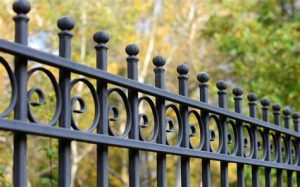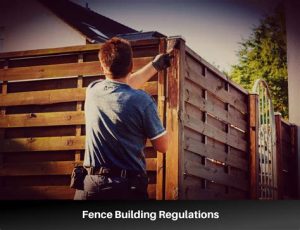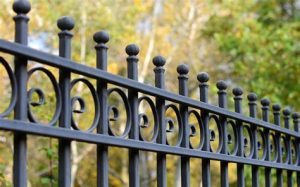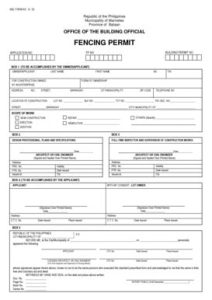Discover the benefits and challenges of installing a fence in winter, including contractor availability, installation speed, and ground condition issues.When planning a fence installation, many homeowners might wonder if winter is a suitable time to start the project. While the colder months may not seem like the most logical choice, there are distinct advantages to installing a fence in winter. From increased availability of contractors eager to take on new projects to the potential for a faster installation process, winter can offer unique benefits. However, it’s important to also consider the challenges posed by colder temperatures and tough ground conditions. In this blog post, we’ll explore both the advantages and disadvantages of installing a fence during winter, helping you make an informed decision for your property.
Advantages of Installing a Fence in Winter
Installing a fence in winter may seem counterintuitive to some, but there are several advantages that make this a wise choice for homeowners. Understanding these benefits can help you make an informed decision for your property enhancement.
One of the most notable advantages of winter installations is the increased availability of contractors. Because many homeowners avoid outdoor projects during the colder months, contractors often have more flexible schedules. This increased availability can lead to better pricing and faster completion times. You may even find companies offering discounts during this slow period.
Another significant advantage is that the ground conditions often allow for easier digging and installation. The frozen ground can be more stable than the soft, wet earth of spring or fall, leading to a more secure fence setup. Additionally, there is usually less vegetation to remove or work around when installing during winter, simplifying the installation process.
Furthermore, installing a fence in winter can provide you with a head start on your landscape planning.
Increased Availability of Contractors
One of the notable advantages of installing a fence in the winter months is the increased availability of contractors. During the colder months, many homeowners tend to put their landscaping and construction projects on hold, resulting in a decrease in the demand for contractors. This means that fence installers often have more open schedules and availability to take on new projects.
As a result, you may find it easier to schedule an appointment that fits your timeline. Additionally, since contractors are less busy during the winter, they might even be more flexible in terms of pricing and project timelines. This can lead to potential savings and a more personalized approach to your fencing needs.
Moreover, the increased availability of contractors in winter can alleviate typical scheduling issues. With fewer projects on their plate, they can devote more attention to your installation, ensuring better communication and quality workmanship. Overall, winter can be an ideal time for those looking to install a fence without the usual seasonal rush.
Faster Installation Process
One of the key advantages of installing a fence in winter is the faster installation process. Typically, fewer projects are scheduled during the colder months, leading to increased availability of contractors. This often allows homeowners to secure services more quickly.
In addition, with less demand for fencing services in winter, contractors can dedicate more attention to your project. This means that they often have more time to focus on the installation, ensuring a higher quality of workmanship. Since they are not juggling multiple projects simultaneously, they can complete your fence installation efficiently and effectively.
Moreover, the ground conditions during winter can be favorable for certain types of installations. For example, frozen ground can provide a solid base for digging post holes, streamlining the installation process.
Disadvantages of Installing a Fence in Winter
Installing a fence in winter can present several disadvantages that homeowners should consider before making a decision. While it may be tempting to initiate a fencing project during the colder months, there are specific challenges that could arise, impacting the overall effectiveness of the installation.
One of the main disadvantages is the ground conditions. Frozen or overly wet soil can complicate the process, making it difficult for contractors to dig holes for the fence posts. This could lead to improper post placement and a weak foundation for the fence, which could affect the durability and longevity of the structure.
Additionally, the winter weather can cause delays in the installation process. Snow, ice, or extreme cold temperatures may not only slow down the work but can also halt it altogether. Contractors may face difficulties in managing materials that may be affected by frigid conditions, such as concrete that needs to cure or wood that could warp.
Lastly, the availability of materials can also be compromised during winter months. Certain products may be more challenging to source, resulting in longer lead times and potential changes to project timelines. This can ultimately affect the overall satisfaction with the installation.
Challenges with Ground Conditions
One of the primary challenges when installing a fence in winter is the condition of the ground. Cold weather can lead to frozen soil, making it difficult to dig post holes and set the foundations securely. This situation can slow down the installation process and may even lead to structural issues later on.
Furthermore, heavy snowfall and ice can make it hard to navigate the installation site. Not only can this impact the physical accessibility of the area, but it can also complicate the use of heavy machinery required for fence installation. Additionally, when the ground thaws, it can lead to muddy conditions that pose further difficulties.
Lastly, unpredictable weather patterns during winter can create uncertainty. Rain or sudden warm spells can compromise ground stability, causing delays and forcing contractors to halt work until conditions improve.
Frequently Asked Questions
Can you install a fence in winter?
Yes, you can install a fence in winter, but certain considerations must be made for the cold weather.
What are the advantages of installing a fence in winter?
One advantage of winter installation is less ground disturbance, which can help prevent damage to your yard, and you may also have more availability from contractors during this off-peak season.
What are the challenges of installing a fence in winter?
Challenges include frozen ground making it harder to dig post holes and potential delays caused by snow or ice.
Will the materials be affected by cold temperatures?
Yes, some materials can become brittle in cold temperatures, which may affect the installation process and the long-term durability of the fence.
How does the ground condition affect fence installation in winter?
Frozen ground can make it difficult to dig holes for posts and can greatly affect the stability of the fence if not properly installed.
Is it more cost-effective to install a fence in winter?
It can be more cost-effective due to fewer demand and potential discounts from contractors eager for work during the winter months.
What precautions should be taken when installing a fence in cold weather?
Precautions include ensuring the ground is not overly frozen, protecting materials from cold damage, and having a clear plan to deal with potential weather-related delays.





